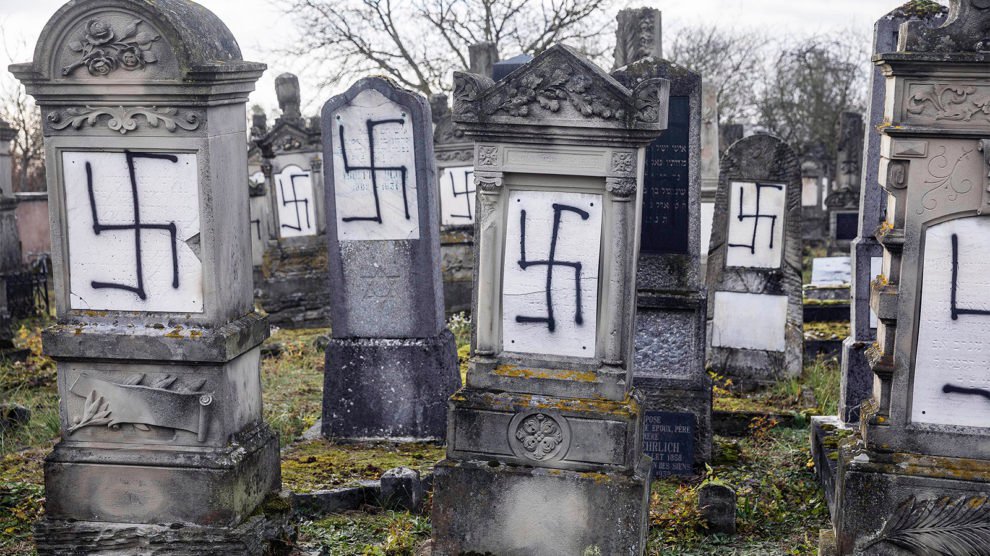Anti-Semitic acts in France increased by 74 per cent last year, French Interior Minister Christophe Castaner announced last month, calling the spread of anti-Semitism a “poison” that “rots minds.”
These acts included an attack on an eight-year-old schoolboy wearing a kippah and the murder of Holocaust survivor Mireille Knoll, who was stabbed and burned in her apartment.
Her killing prompted demonstrations against anti-Semitism throughout the country.
The hike in anti-Semitic activities came after two years of lower numbers of incidents.
After a record high of anti-Semitic acts recorded in 2015 (more than 800), France reported a 58 per cent decrease in such incidents in 2016 and a decline again, of seven per cent, in 2017.
The frequency in anti-Semitic incidents in France seems to be increasing again in 2019.
In the past two months, swastikas have been scrawled on posters of Holocaust survivor and French national hero Simone Veil, who is interred in the Pantheon. A grove of trees planted to honour the memory of Ilan Halimi, a 23-year-old French Jew who was kidnapped, tortured and killed, was vandalised. Yellow-vest protesters verbally abused French Jewish intellectual Alain Finkielkraut on a Paris street, while more and more anti-Semitic graffiti has been appearing on the walls of Paris and elsewhere.
In late February, vandals desecrated a Jewish cemetery near Strasbourg, spray-painting an estimated 100 gravestones with swastikas.
Francis Kalifat, president of the Representative Council of Jewish Institutions in France, said the newest wave of anti-Semitism was a “signal of the democratic weakening” of France and called on the French population to “break up the wall of indifference that surrounds anti-Semitism,” according to the organisation.
Sacha Ghozlan, president of the Union of French Jewish Students, said the rise of anti-Semitism started online and now has moved “to the streets.”
“I think that the fact for many years we got used to hate speech on social media, we did not ban this speech,” Ghozlan said. “It has a direct kind of consequence.”
Ghozlan said more training is needed on how to prevent anti-Semitism.
“Of course, we can do better on training for the students and for the teachers, for the judges and policemen, to make it more clear what anti-Semitism is, to train them,” Ghozlan said.
Read the article by Jax Jacobsen in Sight magazine.

